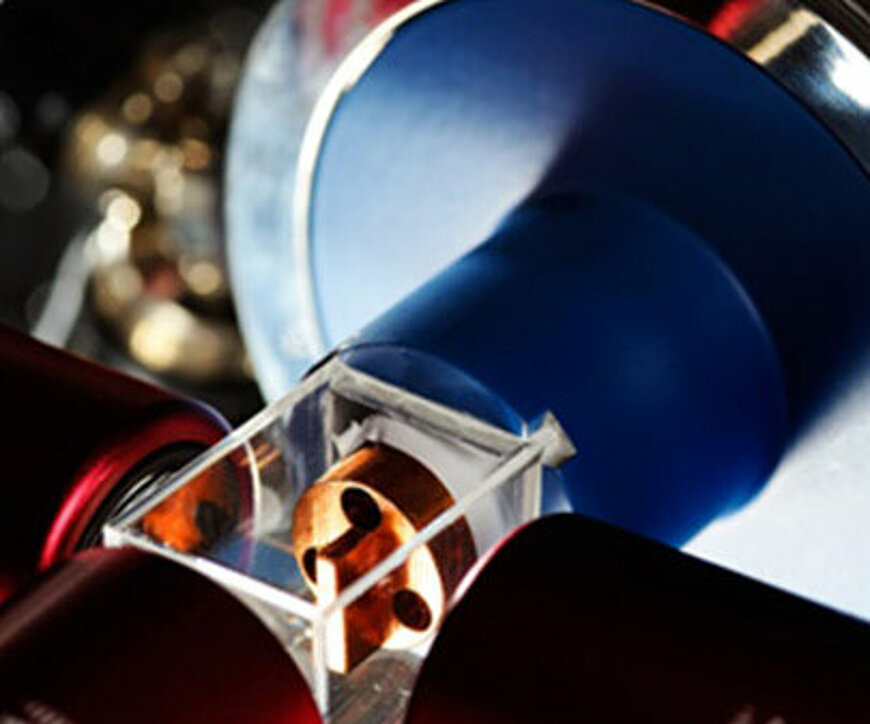Accessible and low-cost design of photonic chips with newly launched industrial pilot manufacturing line

TU/e is one of the JePPIX founders and continues to play a key role.
Future technologies in the fields of communication, sensing, and quantum computing look set to be based on photonic integrated circuits (PICs). To reduce development and prototyping costs for companies working on PICs, access to foundry manufacturing of PICs is essential. The JePPIX consortium, which was established in 2006, has just launched a new Pilot Manufacturing service to provide companies with an accessible and low-cost service for the design and pre-production of PIC devices that can help accelerate the development of such devices for a wide range of societal applications.
Photons can travel vast distances in optical fibers, while photonic systems offer information densities that are orders of magnitude greater than electronic-based systems. This bodes well for photonic integrated circuits (PICs) and could lead to faster, precise, and more energy efficient devices for sensing, imaging, and communication applications.
Supply chains are now aligning to support PIC product development such as JePPIX – the Joint European Platform for Photonic Integration of Components and Circuit. JePPIX is a vibrant community of foundries, software vendors, testing and packaging companies, technology innovators, suppliers, and enablers playing a key role in defining the road to commercialization of integrated photonic devices.
Motivation for open pilot manufacturing
JePPIX has already reduced the cost of creating initial prototypes thanks to their open access foundry model, which has allowed many innovators and researchers to experiment with PIC technologies.
Now, thanks to the Pilot Manufacturing product, this industrial platform is removing the next hurdle to facilitate easier product creation. Using this product, businesses lacking fab facilities can systematically create and evaluate manufacture-ready designs. The supply chain includes design tool vendors, professional designers, foundries, and test automation experts.
Based on Eindhoven succes
This new development in the JePPIX approach makes key technological and operational aspects associated with PIC fabrication openly accessible to as many PIC developers as possible, and in a manner that can be referred to as a horizontal-integrated fabrication model. As a result, customers are able to configure the supply chain to suit their own expertise and requirements.
JePPIX includes Eindhoven success stories SMART Photonics – the pure-play foundry, BRIGHT Photonics – a professional design house, the Photonic Integration research team at TU/e, and a number of leading European institutes and businesses active in the exploitation of photonic integration technology.
Importance of a generic platform
In terms of PICs, indium phosphide (InP) is the material of choice when it comes to performance. Integration provides the route to scaling and cost. JePPIX’s generic photonic integration platform also exploits one of the key advantages of PIC development process; namely the ability to include a large variety of native circuit components such as lasers, photodetectors, and optical amplifiers on the same substrate.
This generic integration approach results in more stable and reproducible performance in chips, efficient design flow, and faster production. Crucially, JePPIX’s pilot line offers a reduction in size, weight, power consumption, and cost. This bodes well for companies seeking to build PIC devices into their products without having to rely on their own dedicated fabrication platform.
Application and acces
JePPIX’s pilot manufacturing services will be of relevance to a broad range of companies involved in communications, biomedical sensing, and metrology. JePPIX includes three PIC foundries that provide access to differing techniques for the production of InP PIC devices comprised of various optical subcomponents.
It is anticipated that the JePPIX pilot line will help a number of companies become pioneers through the exploitation of PICs in new markets. JePPIX is partly supported by the InPulse project, coordinated at TU/e, which has received funding as part of the European Union’s Horizon 2020 research and innovation programme (grant agreement No: 871345).